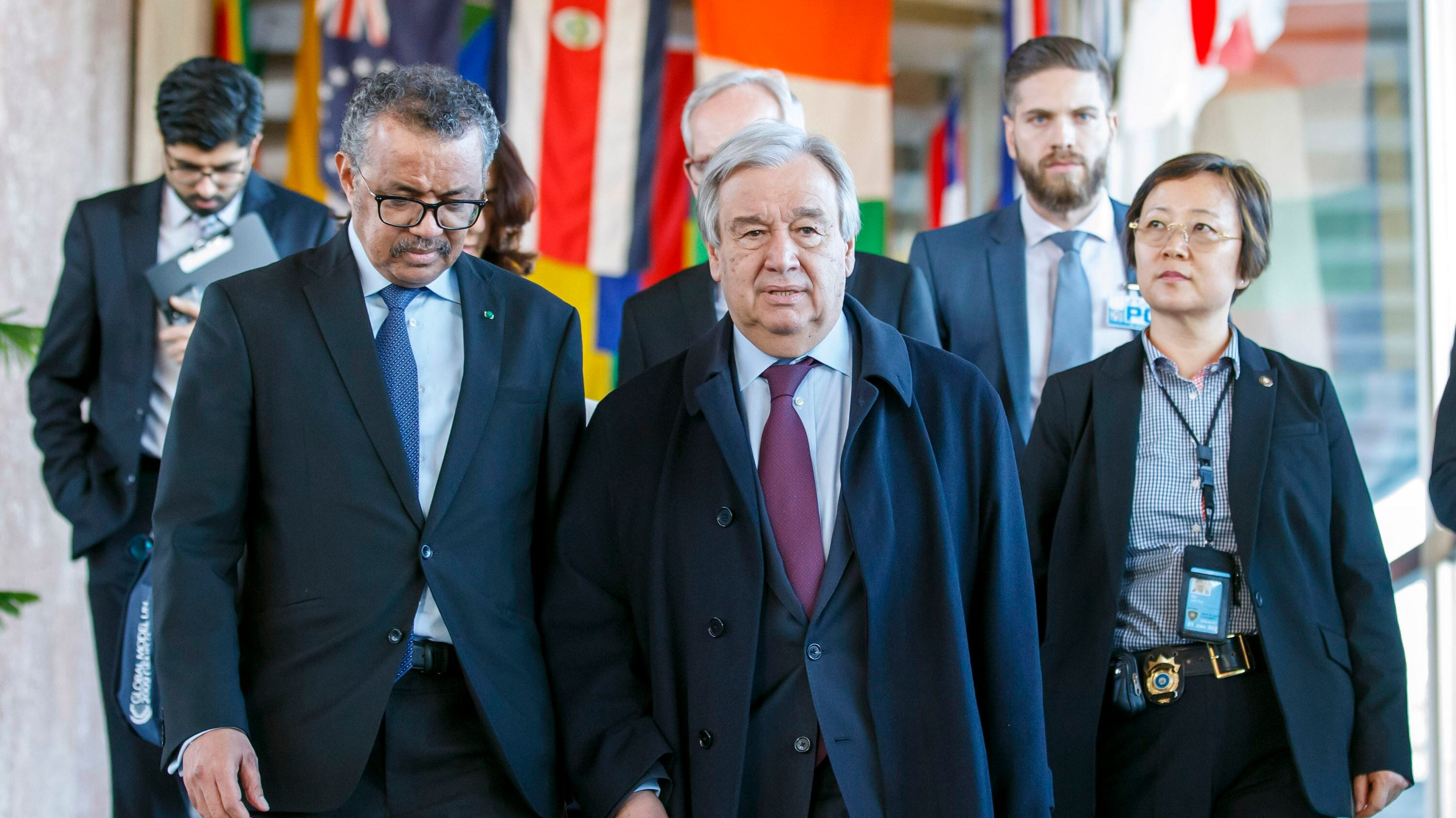The first major coronavirus outbreak has officially hit outside of Asia after Italy confirmed more than 200 cases, raising fears of a global pandemic. Italian officials locked down at least 10 towns, home to about 50,000 people, as markets tanked around the world, with the Dow Jones plummeting more than 1,000 points in intraday trading.
For weeks, the World Health Organization's chief official has warned of a narrowing "window of opportunity" to stall the virus's spread, but the case count continues to tick upwards on a daily basis. As of Monday, there have been 77,362 cases reported in China, including 2,618 deaths. In the past 24 hours, China reported 460 new confirmed cases and 150 deaths.
But calling the situation a pandemic prematurely causes fear and "does not fit the facts," Dr. Tedros Adhanom Ghebreyesus told reporters Monday. He said the body is not ready to declare a pandemic, but the "sudden increase in new cases" in other nations is "deeply concerning."
"What we see are epidemics in different parts of the world, affecting countries in different ways and requiring a tailored response," he said. "Does this virus have pandemic potential? Absolutely, it has. Are we there yet? Not yet."
A series of missteps, including China's slow response in recognizing the severity of the outbreak, not enough protection for health workers, and a cruise ship quarantine that became a hotbed for spreading the virus, have aided the growth even as officials around the world take drastic action. Nearly 800 million people remain under some sort of quarantine in China, an unprecedented move during a public health crisis. Other countries confronting the disease are deciding whether to follow China's lead in blocking residents' movements. South Korea, which has a reported 833 cases and seven deaths, is on the highest possible alert, which would allow the government to lock down regions.
Despite recent outbreaks of the virus in new areas, initial reports from a WHO-led team of medical experts who recently traveled to China show promising signs. Dr. Tedros said the group found the epidemic "peaked and plateaued between 23 of January and 2 of February and has been declining steadily since then." He said the group, which included members of the U.S. Centers for Disease Control and Prevention and the National Institutes of Health, reported no significant change in the DNA of the virus. It also found a 2-4 percent fatality rate in Wuhan, the epicenter of the outbreak, and a 0.7 percent fatality rate outside the region. The trip was initially criticized for not including visits to Wuhan or the Hubei region. Initial offers from the CDC and WHO were rebuffed by Chinese officials.
The effects of COVID-19 have hit the global economy as well. The S&P 500 dropped almost 3 percent Monday, and European markets had the worst day since 2016. In Milan, the stock market dropped more than four percent Monday, and some fashion shows were canceled during the city's fashion week.
Companies around the world are saying they may not meet sales or profit targets due to factory closures in China and uncertainty over supply chain and manufacturing. Last week, Apple said the virus was hurting supply and demand for iPhones. Oil prices also fell, the global oil benchmark lost more than 3.5 percent and the U.S. benchmark fell to $51.50 a barrel.
When asked about Europe's preparedness for containing the virus, a WHO official said the problem for developed nations is that health systems may come under a lot of pressure. He said slowing down the virus, to allow flu season to pass, will benefit the system overall and help health centers respond better to the virus's presence.













